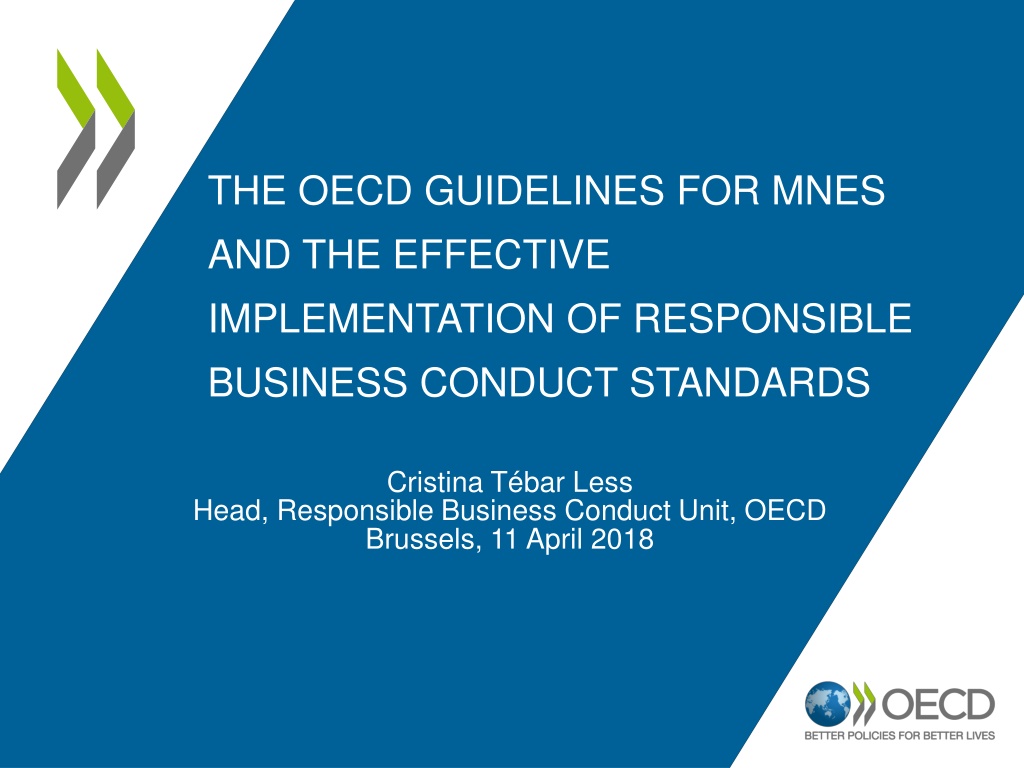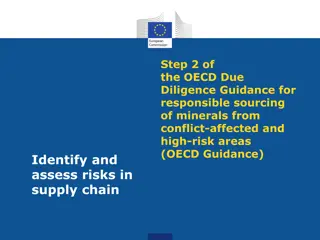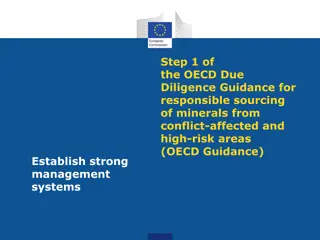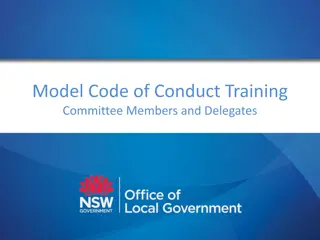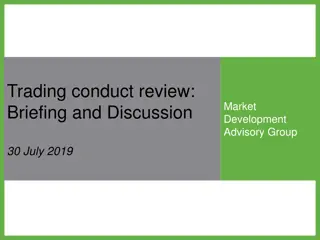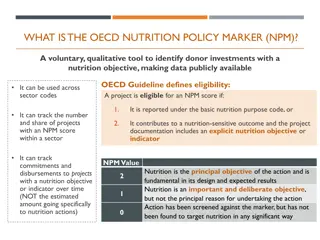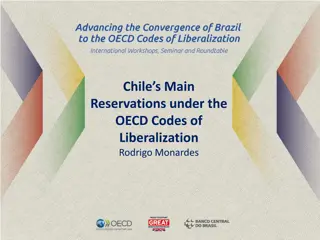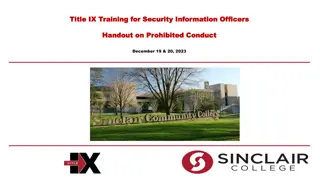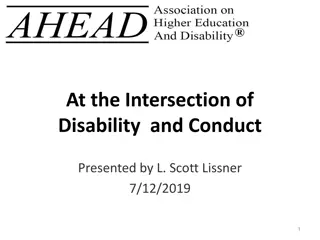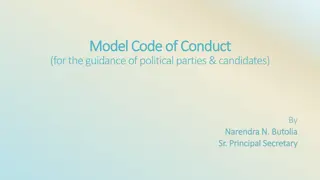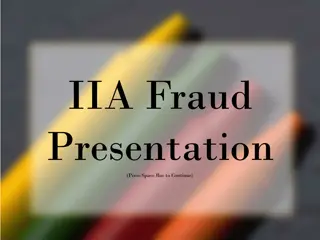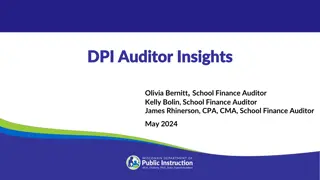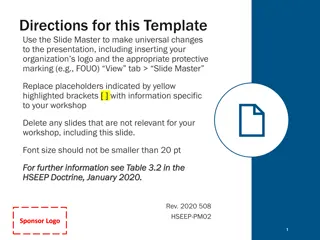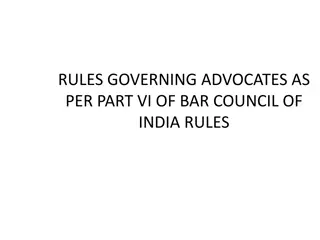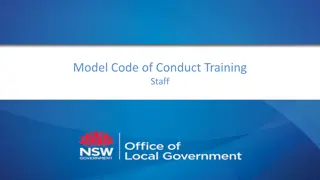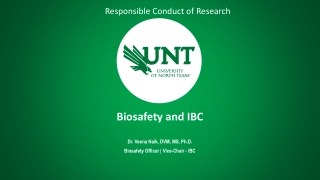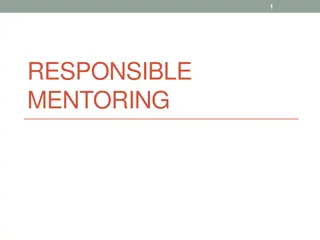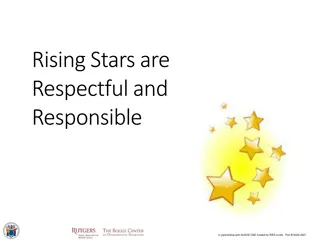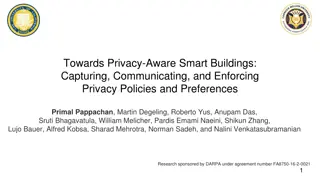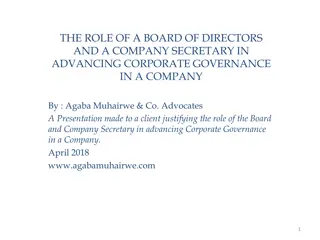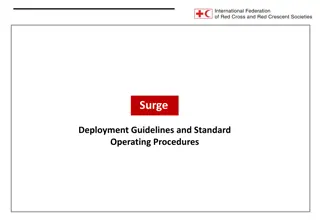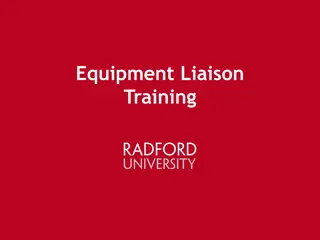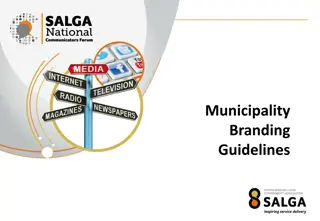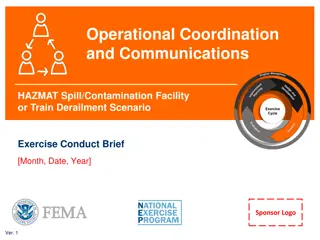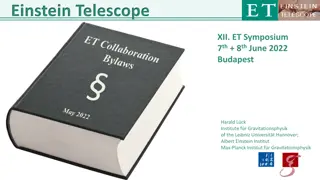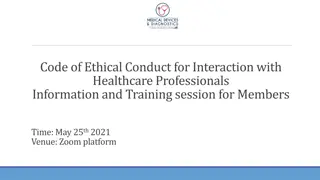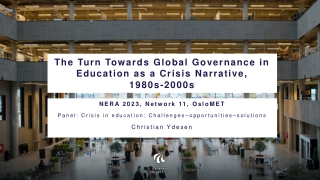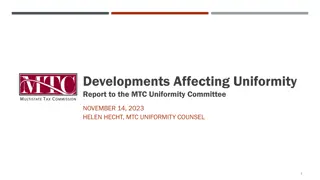OECD Guidelines for Responsible Business Conduct
The OECD Guidelines for Multinational Enterprises provide a framework for responsible business conduct, encouraging sustainable practices and minimizing negative impacts. The OECD's work on responsible business conduct focuses on enhancing economic and social well-being globally, emphasizing ethical standards, transparency, and accountability.
Download Presentation

Please find below an Image/Link to download the presentation.
The content on the website is provided AS IS for your information and personal use only. It may not be sold, licensed, or shared on other websites without obtaining consent from the author. Download presentation by click this link. If you encounter any issues during the download, it is possible that the publisher has removed the file from their server.
E N D
Presentation Transcript
THE OECD GUIDELINES FOR MNES AND THE EFFECTIVE IMPLEMENTATION OF RESPONSIBLE BUSINESS CONDUCT STANDARDS Cristina T bar Less Head, Responsible Business Conduct Unit, OECD Brussels, 11 April 2018
OECDs mission and functions To promote policies that will improve the economic and social well-being of people around the world. OECD work covers a broad range of topics to help governments foster prosperity and fight poverty through economic growth and financial stability. Provides a forum in which governments share experiences and seek solutions to common problems. Develops international standards
OECD: key figures 575 Million Budget (2017)
OECD WORK ON RESPONSIBLE BUSINESS CONDUCT
What is Responsible Business Conduct? Business practices that contribute to sustainable development while avoiding causing harm Maximise positive impact while minimising negative impact Moves away from traditional vision of CSR: goes beyond philanthropy or voluntary action- but also beyond just complying with domestic law Focuses on company s impact both negative and positive RBC is part of core business and risk management, including in the supply chain and other business relationships Applies to all businesses: MNEs, SMEs, SOEs
OECD Guidelines for Multinational Enterprises The most comprehensive international standard on responsible business conduct http://mneguidelines.oecd.org/media/oecdorg/directorates/directorateforfinancialandenterpriseaffairs/2017/MNE-Guidelines.JPG Recommendations from governments to businesses operating in or from adhering countries Reflect evolving expectations Endorsed by business, trade unions and civil society Include implementation mechanism : National Contact Points Open to non-OECD members
Scope and themes of the OECD Guidelines Expect that companies behave responsibly by identifying, avoiding and addressing negative impacts that they cause, contribute to or are directly linked to through a business relation Employment & Industrial Relations Human Rights Disclosure Consumer interests Science & Technology Environment Combating Bribery, Bribe Solicitation and Extortion Key tool: supply chain due diligence Competition Taxation
Alignment with other international standards OECD Guidelines for Multinational Enterprises UN Guiding Principles on Business and Human Rights ILO Tripartite Declaration of Principles concerning Multinational Enterprises and Social Policy + environmental, anti-bribery, corporate governance conventions and instruments
Concepts, principles general policies Disclosure Human Rights Employment and Industrial Relations Environment Bribery, extortion Consumer interests Science and technology Competition Taxation
The OECD Guidelines in the global governance universe National Action Plans Global agendas (G7/G20 SDGs) National legislation International Instruments Sector Agreements OECD instruments Guidelines Trade and Investment Agreements EU regulation Export credits
WORKING WITH GOVERNMENTS
Governments role in promoting and enabling RBC Regulating establishing and enforcing an adequate legal framework that protects the public interest and underpins RBC, monitoring business performance and compliance with regulatory frameworks Facilitating clearly communicating expectations on what constitutes RBC, providing guidance with respect to specific practices and enabling enterprises to meet those expectations Co-operating working with stakeholders (business, worker organisations, civil society), across internal government structures, with other governments to establish coherence with regard to RBC Promoting demonstrating support for best practices in RBC Exemplifying acting responsibly in the context of the government s role as an economic actor.
MULTI-DIMENSIONAL APPROACH TO RBC POLICY 1) COORDINATING POLICY ACTION Working with OECD committees/communities Promoting policy dialogue/engaging with international processes Promoting policy coherence through National Action Plans on RBC/Business & Human Rights 2) SUPPORTING REFORMS IN PRACTICE Enabling framework for RBC Sector-specific or thematic policies 3) STATE AS AN ECONOMIC ACTOR Public procurement, export credits; development finance 4) IMPLEMENTING THE OECD GUIDELINES Working with National Contact Points
COORDINATING POLICY ACTION At the OECD: Taking advantage of expertise of different OECD policy communities (e.g. procurement, export credits, corporate governance, state-owned enterprises, development finance) With partners: Promoting dialogue/engaging with international processes Collaboration with the UN OHCHR and Working Group on Business and Human Rights on National Action Plans, ILO, UNDP, UNICEF Engagement with the G7, G20, EU, ASEAN, APEC processes
WORKING WITH BUSINESS
OECD Due Diligence Guidance Under the OECD Guidelines for MNEs, companies should carry out due diligence to identify, avoid and address adverse impacts that they cause, contribute to or to which they are directly linked through their business operations. Since 2011, OECD has developed due diligence guidance (general and sectoral) for companies, thereby establishing a common framework for due diligence in line with the OECD Guidelines for MNEs Developed in consultation with and endorsed by a multi-stakeholder advisory group of government, business, trade unions and civil society. Approved by governments adhering to the Guidelines, open to all governments
OECD sectorspecific due diligence guidance Implementation programmes for each Guidance New in 2018: General Due Diligence Guidance for RBC
RBC AND STAKEHOLDERS: ACCESS TO REMEDY
National Contact Points for RBC All adherents to the Guidelines must establish a National Contact Point Dual mandate: (1) promote the Guidelines and (2) handle issues on implementation of the Guidelines in specific instances through non adversarial means (mediation, good offices) Covers companies operating in or from adhering companies: transnational reach De facto: the only non-judicial grievance mechanism to address complaints related to RBC
NCPs: key data and facts 48 adhering countries required to establish NCPs Core criteria: visibility, accessibility, transparency, accountability Different structures: mostly based in one ministry; many have multi-agency structure and involve stakeholders; some independent NCPs Ca 400 cases Issues in over 100 countries
Number of cases submitted annually 2000- 2017 45 40 35 30 25 20 15 10 5 0 00 01 02 03 04 05 06 07 08 09 10 11 12 13 14 15 16 17
Main themes of cases from 2000-2010 and 2011-2017 90% 80% 70% 60% 50% 40% 2001-2010 30% 2011-2017 20% 10% 0%
Key sectors related to cases Construction 4% Wholesale and retail trade 4% Unknown 7% Transportation and storage 4% Professional, scientific and technical activities 3% Financial and insurance activities 25% Information and communication 7% Other service activities 7% Manufacturing 18% Mining and quarrying 7% Electricity, gas, steam and air conditioning supply 14%
Submitters of cases 2000-2017 1% 1% 3% 13% NGO Trade Union Individual Other interested parties Business Multistakeholder 41% 41%
Formula One in Bahrain (2015) NCP: NCP: United Kingdom Company: Company: Formula One Group Submitter: Submitter: Americans for Democracy and Human Rights in Bahrain Main issues: Main issues: Risk of human rights impacts due to hosting in Bahrain The mediated agreement facilitated by the UK NCP included the first public commitment by Formula One to respect human rights in all operations and develop a human rights due diligence policy. 25
Statkraft/SSVAB (2016) NCP: NCP: Norway and Sweden Company: Company: Statkraft/SSVAB Submitter: Submitter: Jijnjevaerie Saami village Main issues: Main issues: Risk of impact on reindeer herding from wind power project Mediation was carried out but did not reach an agreement within the NCP. However, a separate agreement was reached which covers compensation and regulates the impact of and the preventive measures in the wind power projects, in order to reduce the negative effects on the Jijnjevaerie Saami village and reindeer herding 26
Kinross (2016) NCP: NCP: Brazil Company: Company: Kinross Submitter: Submitter: Paracatu Association Main issues: Main issues: Damage to homes close to a mine site Several mediation sessions were organised by the NCP. The parties agreed that, working with the local authorities, Kinross would finance the renovation of damaged homes or resettlement where necessary. The NCP also recommended that Kinross conduct due diligence processes that assess the effects of its mining activities, and establish a maximum distance between its mining operations and residential areas in Paracatu. 27
Natixis-NGAM and UNITE HERE NCP: France Company: Natixis-NGAM Submitter: UNITE Here Main issues: The union submitting the complaint noted a social conflict taking place at the Westin Long Beach Hotel, and alleged violations of freedom of association, collective bargaining and working hours. This hotel was operated by an American hospitality conglomerate and owned indirectly by an American institutional investor. AEW capital Management, a US subsidiary of Natixis and NAGM, provided asset management advisory services to the hotel owner. The French NCP offered its good offices and engaged with Natixis, NGAM and the submitters on the issues. In September 2017, the NCP welcomed the results obtained: the hotel has been sold to another owner, a new operator was chosen, and unionisation was agreed to. The parties recognised the NCP s role in contributing to solving the two-year long labour dispute noting that as a result of the NCP s constructive engagement with Natixis, the company changed its approach and carried out effective due diligence measures by engaging with its subsidiary to help resolve the complaint.
Heineken, Bralima and former employees of Bralima NCP: Netherlands Company: Heineken, Bralima Submitter: Former employees of Bralima Main issues: Three former employees of Bralima, a subsidiary of Heineken operating in the Democratic Republic of Congo (DRC) submitted a specific instance with the Dutch NCP alleging that Bralima had not observed the Guidelines in the dismissals of 168 former employees in the DRC between the year 1999 and 2000. The NCP accepted the specific instance and organised two mediation meetings, one in Uganda and one in Paris , to facilitate the participation of the submitters. The mediation concluded with an agreement between the parties. As part of the agreement Heineken agreed to provide compensation to the workers. Heineken also indicated that it will draw up a policy and guidelines on how to conduct business and operate in volatile and conflict-affected countries. The parties noted that involvement in the specific instance has improved relationships between the company and submitters and also been important in signalling expectations with respect to corporate accountability to other enterprises operating in the region. The NCP will monitor the next steps agreed to the by the parties.
mneguidelines.oecd.org cristina.tebar-less@oecd.org
